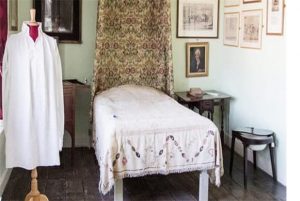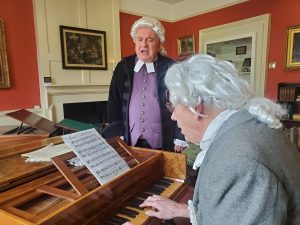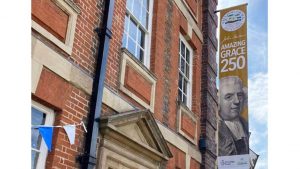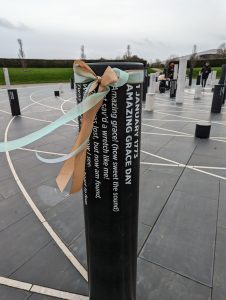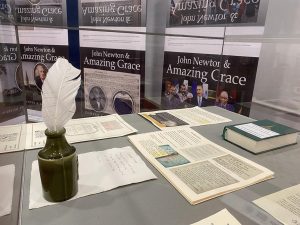As part of the Amazing Grace 250 programme we were treated to a talk by Professor John Coffey from the University of Leicester which offered new insights into John Newton’s views about the slave trade.
John Newton, the former slave trader, only spoke out in public against the slave trade in the 1780s when he was at St Mary Woolnoth in London. Some historians have said that his “conversion” to the abolitionist cause came quite late in life, and even that he was something of a “reluctant abolitionist”. But years earlier, in 1762, a pamphlet against the slave trade was published which included an anonymous eyewitness account about the horrors of the trade. Was this anonymous eyewitness John Newton? Professor Coffey presented a convincing case that it was, pointing out a number of strong links between the eyewitness account and the records of John Newton’s voyage as first mate aboard the Brownlow in 1748 / 49. Professor Coffey also highlighted similarities in writing style between this anonymous account and John Newton’s later published papers.
If John Newton was the author, however, why then did he not speak out in public about the slave trade before the 1780s? Again Professor Coffrey offered some suggestions as to why it would have been difficult for Newton to do so in the 1760s.
This was a very engaging talk, and it challenged those of us in the audience to re-think our views about John Newton’s support for the abolitionist cause. For me, it offered a new perspective on Newton’s time as a curate in Olney: rather than the “reluctant abolitionist” whose views on the slave trade only really took shape after he moved to London, perhaps he was quietly a supporter of the abolitionist movement from the very start of his church ministry.
Written by Derek Martin, Volunteer with the Cowper and Newton Museum
Click on the link to read John Coffey’s article: ‘I was an Eye-witness’: John Newton, Anthony Benezet, and the Confession of a Liverpool Slave Trader


